Back in the day, Google’s founders were so adamantly against an advertising-funded search engine model that they wrote a research paper about it while they were students at Stanford. Crazy, right?
That was back in 1998, before Larry Page and Sergey Brin realized the potential scope of the dorm room project that would later become Google Inc. Now, Google’s results pages are dominated by paid advertising spots and Google’s advertisements for its own services. Organic search results (the original reason for Google’s existence) are getting pushed further and further down the page. They no longer hold a sizable portion of the screen’s real estate, and sometimes searchers have to scroll down to even find them. Of course it all depends on the search query, but still—it’s startling how far good old “regular” search results have fallen. In the battle of organic vs PPC, paid advertising space is dominating the competition, sometimes drastically so.
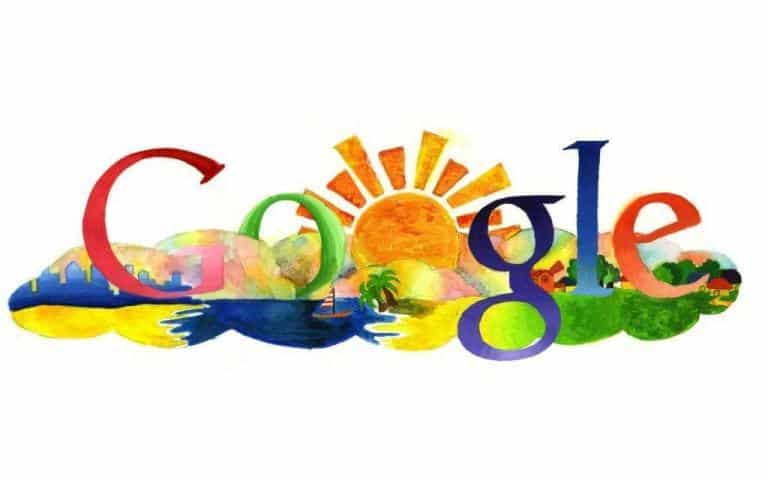
If you’re unfamiliar with the terms, organic search results are the listings that show up when you perform a search query because they closely match the words you typed. They’re based on relevance. Paid search results (also known as Pay-Per-Click, or PPC) are advertisements purchased by the owners of the advertised websites. They show up when web users search for certain keywords chosen by the advertiser. You can distinguish organic vs PPC results based on their location, labeling, and color/border. Advertisements are usually on the top and right sides of the screen, have labels like Ads or Ads related to ___, and are sometimes enclosed in a lightly-colored box or border.
With each passing year, Google has become more and more aggressive in its goal to increase revenue. Both PPC advertisements and links for Google products (like Google+, Google Maps, and Gmail) have slowly taken over some search results pages. According to Tutorspree, when the writer searched auto mechanic in Google, only 13% of a search results page was dedicated to organic search results. 29% was dominated by AdWords (PPC marketing), 14% was given to Google’s navigation bar, and 7% was a Google Map. When it comes to organic vs PPC, PPC towered over its competition.
But it’s not always that way. For example, when I conduct a search for astronaut, there aren’t any AdWords advertisements present at all. So what’s the difference? Why are the search results for astronaut so different from the search results for, say, italian restaurant? As you can see below, astronaut‘s search results page is dominated by organic listings, while italian restaurant generates a mass of advertisements and Google products.
NOTE: I’m using a 13-inch Macbook Pro and the web browser Safari.
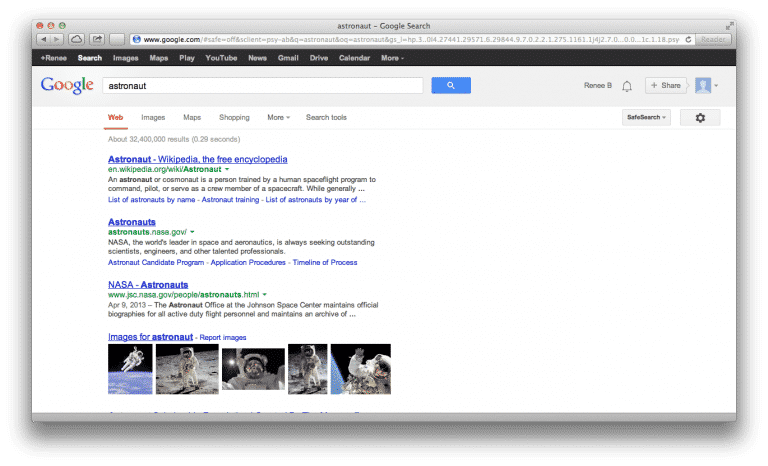
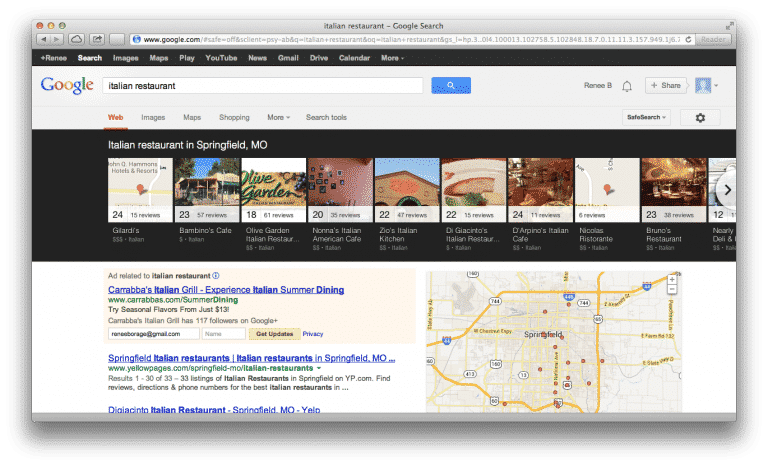
It’s all about locale. When Google decides that your search is local, it transforms your search results page to reflect your perceived needs (because while I may very well be searching for a nearby Italian restaurant in Springfield, MO, it’s doubtful that I’m searching for a local astronaut). A map appears on most local results pages, along with a black carousel with results from Zagat and Google+. Not only does this carousel identify some local Italian restaurants, but it also commands your attention through its location at the top of the page, contrast between black and white, and general prominence. What’s not prominent? The organic search listings. They’re just a tiny sliver of the page and only the first listing makes it onto the page; the rest must be worked for (i.e., you have to scroll down).
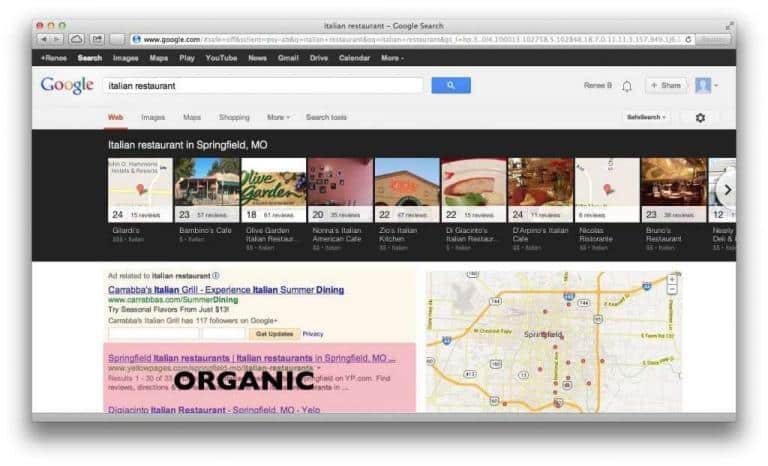
On a cell phone, this dominance is even more prominent. Sometimes a search query for something local results in 0% organic listings on the first page. You have to scroll past AdWords advertisements, maps, and local listings before you reach the organic listings. When you consider how many searches are done on a phone nowadays (according to Google’s research in August 2012, 63% of searches are done on a phone), the facts are shocking. More than half of searches are on a phone and just about half of those mobile searches are local (according to Google). That means that if you want your website to show up on a searcher’s results screen, you can’t just rely on SEO techniques anymore. If you want your website present immediately (not post-scrolling), you’re going to have to pay for it. Although organic search results were the original reason for Google’s creation, they’ve been overshadowed by advertising. Organic vs PPC? Most of the time, it seems, PPC is winning.
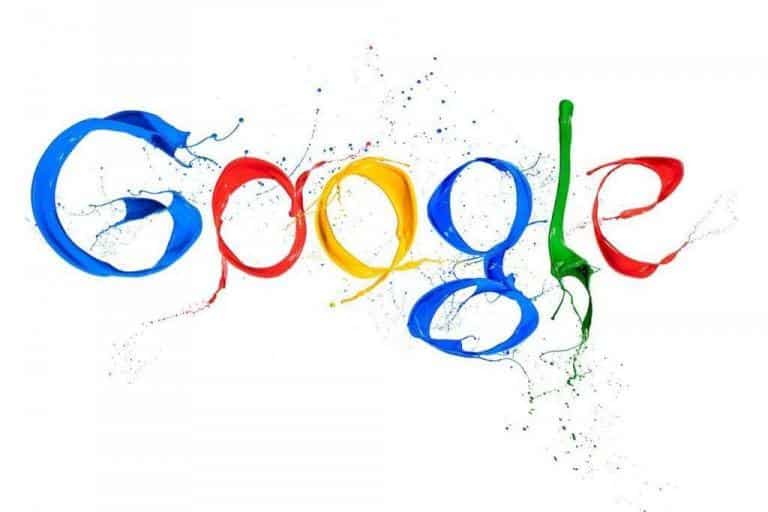
Organic vs PPC: Which should you choose?
So what does this mean for Internet marketers? First, you have to remember that just because you have the top organic listing, that doesn’t mean you have the best spot on the page for traffic. Often, viewers will look to the PPC advertisements and links to Google’s products first. If you want to compete for local search queries, you should be combining your marketing efforts and including both SEO (for organic results) and PPC (for paid results). While organic results are more trusted by viewers and free to marketers, their value depends greatly on positioning (with #1 being the most coveted position, for obvious reasons) and you have to spend time optimizing your website. PPC marketing, on the other hand, gives you more control over where and when your website will appear on search results pages, but you have to pay for it and accept that many viewers will skip right past you, knowing you’re an advertisement.
So if you can afford both the time and the money, come at Google from all sides and include both SEO and PPC. If not, use some keyword trial and error to decide where you should be planting your efforts.


